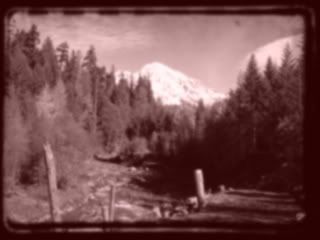Living off-grid is by no means new, even though it is fairly new in the consciousness of most since being popularized by television and celebrities. Think about the settlers of this land, Native tribes, and numerous other peoples around the globe; none of them were tied in to utilities. Being off-grid is not out of the ordinary anymore- Home Power Magazine reported in 2006 that the number of families living off-grid has jumped 33% each year for a decade. Importantly, the phrase does not refer to 'being off one's rocker', although there are those who feel folks actually choosing this manner of living are just that. :-) Nor is it to be confused with being 'off the map' , 'under the radar', nor any other extreme notion referring to a desire to completely disappear from the company of society.
The grid does refer to any one of several public utilities- electric, water, sewer, gas. Being off-grid, then, is living without reliance on any one or more of said utilities. A truly off-grid home is able to operate independently of all traditional utility services. This is our personal goal (more on that later.)
The answers as to 'why' are as varied as the folks you could ask. Many reasons are similar, some unique, a few honestly strange. Too each his/her own! The top two reasons are saving money and reducing carbon footprint. Others include unavailability of utilities to rural land, financial hardship to connect, survivalist philosophy, spiritual connectedness.
"All very interesting, but what are your reasons, Tom and Krystal?" Alright already, hold your horses! Our main reasons, detailed below, are: financial freedom, environmental responsibility togetherness, and health. However, many of the above mentioned reasons play a small part, also.
Financial freedom: We want to retire from the city work-a-day world, live simply and inexpensively, raise what we eat-eat what we raise, be mortgage-free and have no utility bills. Being off-grid allows for these. Such living is a wealthy life, even if one may be cash poor. This concept, unfortunately, was mostly lost with our grandparents generation.
Environmental responsibility: Traditional utilities are wasteful, incredibly destructive to the environment, and pose a danger to health. We feel a personal responsibility to live in harmony with nature as much as possible, within reason, not "ruining the earth." For each person this is different based on ability, practicality and willingness. We are able to choose a rural life and going off-grid. We have been doing what we can in an urban environment and encourage you to, also. It's fun to utilize low-tech ways to be self-sufficient, especially for children!
Togetherness: Trying to make a living is so busy and stressful! It eats up tons of time and energy and makes us feel isolated from one another. We love spending time together caring for the animals, working on projects, serving our God, gardening, cooking, to just be. Tom retiring to our very own ranch would be a dream come true for us both!
Health: Clean air, fresh water, natural home-grown food, animal husbandry, gathering our own wood for heat and cooking, exercise engaging in such outdoor activities, less stress, pure enjoyment of life as we were created- what could be more healthy, both physically and mentally!!!
As briefly mentioned earlier, our goal is to be 100% off-grid. Although each alternative system we install will be discussed in future posts, most likely individually for lots of detail and information (more than you may even want to know on some!), here is a list:
super-insulated, active solar, straw bale home thus reducing needs for heating and cooling; wood, both a renewable and sustainable resource, for heating and cooking; greywater system instead of septic; 'dry' toilet; photovoltaic solar array for generating our own electricity; possibly wind turbine for power generation on stormy days; solar and wood heated water; rainwater harvesting; composting for renewable/sustainable fertilizer needs; using less electricity in general; well or spring water. That just about covers it!

No comments:
Post a Comment